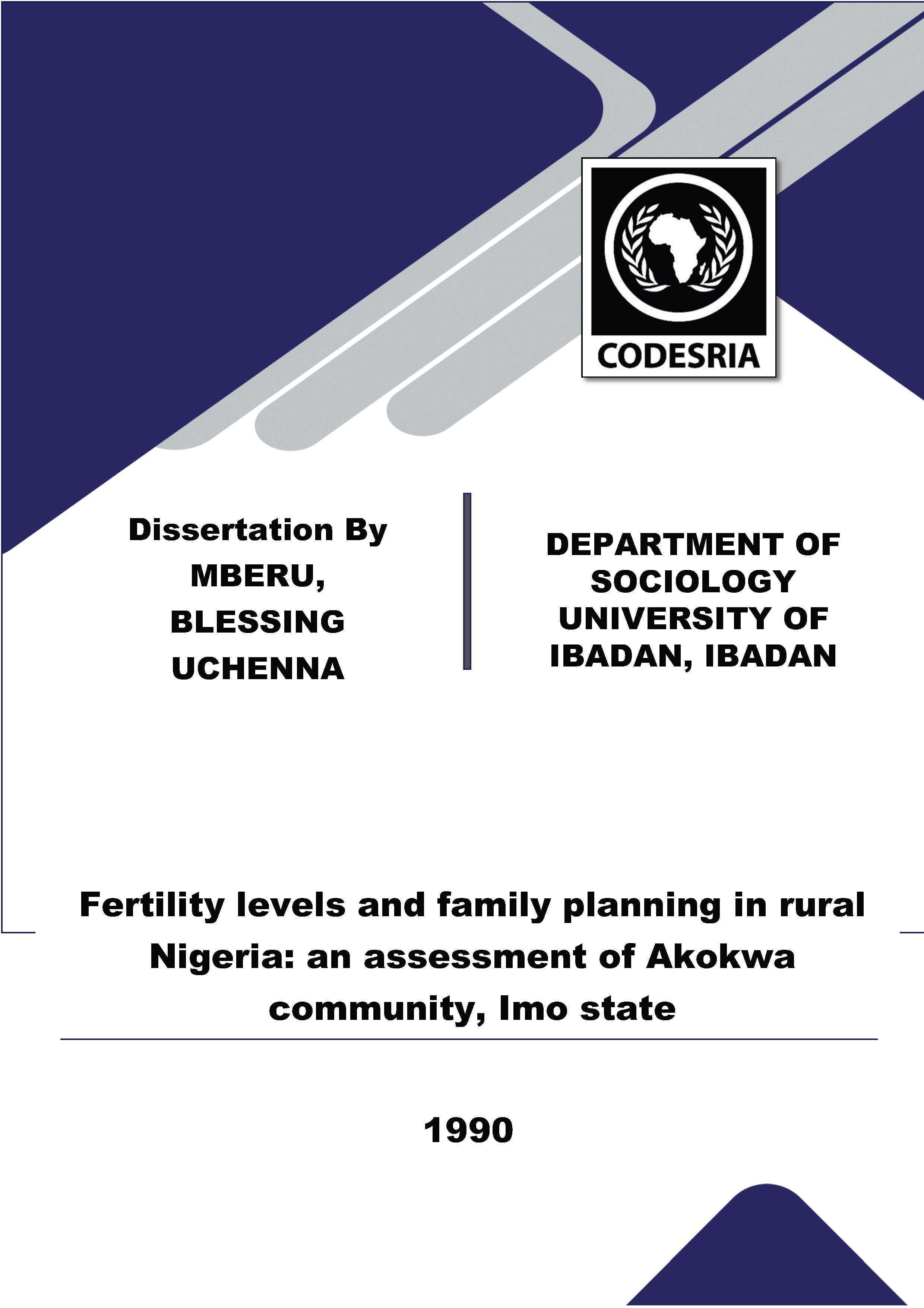Fertility levels and family planning in rural Nigeria: an assessment of Akokwa community, Imo state
Mots-clés :
Fertility levels, family planning, rural NigeriaSynopsis
This study is an attempt to assess fertility levels and family planning practices in a rural Nigerian community@ It utilized survey data gathered from 312 wo~en aged 15-49 years. In all, eleven hypotheses were tested using chi-square and Analysis of variance test instruments"'It was found that the ideal family size in the community is 6 children per woman. When the effect of
mortality on fertility is controlled, the ideal family sizè came down to 5.4 children per woman. Infant and child mortality was found to be very low, approximating 905 children per 100 births and this appears to have a long history within the community. we discovered that the community's social norms, which e~phasizes trainingof children acts as a check on high fertility levels,
keeping it at levels which income and available resources can adequately take care of. This provide adequate care for children and hence low levels of child mortalitye






